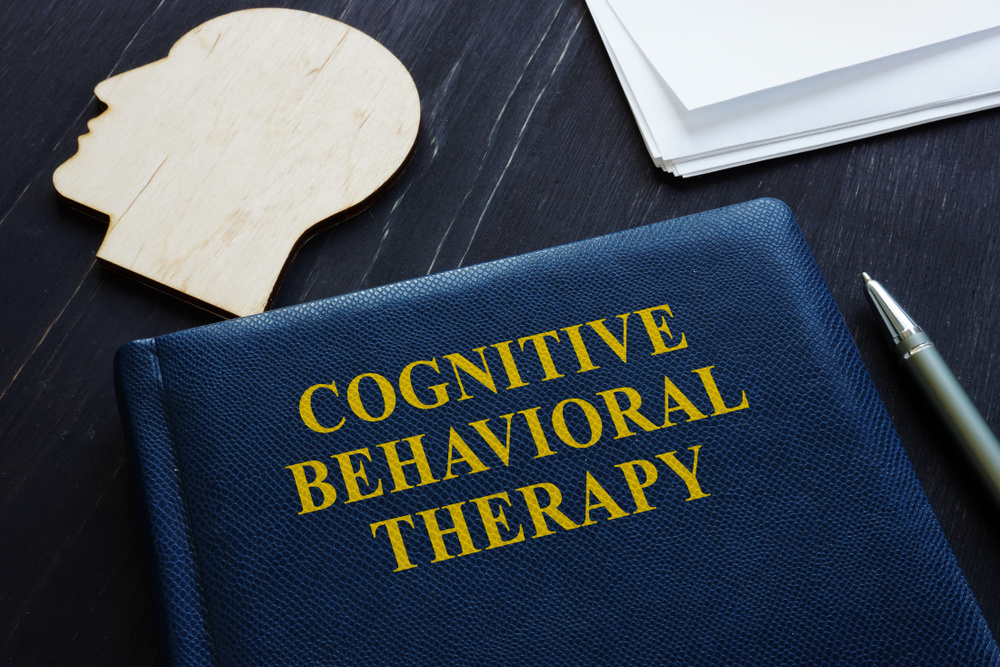Last Updated:
July 22nd, 2025
CBT | Addiction Treatment Therapies
When you’re caught in addiction, it can feel like your mind is working against you. Your mind can tell you that you’re not good enough, have already messed up too badly to go back or that you need to use drugs or alcohol just to get through the day. Those thoughts aren’t facts, but they can be very convincing and cause you to behave in ways you know are harming you. Cognitive behavioural therapy teaches you to spot those thoughts, challenge them and choose a different way of reacting. It is a cornerstone of effective addiction treatment that has helped countless people turn their lives around.

What is cognitive behavioural therapy?
Cognitive behavioural therapy (or CBT for short) is a type of talking therapy that helps you understand how your thoughts, feelings and actions are all linked. CBT was first developed in the 1960s by a psychiatrist called Aaron Beck who was working with people struggling with depression and noticed that the way they talked to themselves was often harsh or hopeless.
Beck started helping them question those thoughts and build new, more balanced ones. Back then, CBT was mostly used for depression and anxiety but CBT has since become one of the go-to therapies for all kinds of issues, including addiction, eating disorders, trauma and addiction.
How does CBT work for addiction?
Addiction can put your brain on autopilot, with your thoughts jumping to the worst-case scenario, talking you into doing things that only make things worse. CBT addiction treatment focuses on helping you spot the cycle of triggers and thought patterns that lead you to drink, take drugs, gamble or engage in other harmful behaviours. Once you have spotted them, you can then practise not believing everything your brain is telling you.
Instead of just saying “don’t drink or use drugs,” CBT helps you to understand why you want to and better ways to respond to the urges. Rather than pretending everything is fine, you can give yourself a reprieve from your inner critic and start making your own choices again.
Who is CBT for?
Cognitive behavioural therapy isn’t just for one “type” of person. It can help if you’ve been struggling with addiction but it also works if you deal with anxiety, depression, anger issues, trauma or low self-esteem (all of which commonly occur with addiction). In fact, a lot of people who start CBT addiction treatment don’t even realise how much their thinking patterns have been affecting their choices until they start talking it through.
CBT is especially helpful if you tend to bottle things up or get stuck in your own head. You don’t need to be good at talking or have a huge emotional breakthrough every session. CBT is about learning little shifts over time that can make big differences. Whether you’ve been using drugs or alcohol for years or only recently noticed things getting out of control, CBT gives you tools that work in real life, not just in a therapy session.
What are the benefits of CBT addiction treatment?
CBT addiction treatment gives you tools you can use anywhere, anytime. Whether you’re in a difficult therapy session, walking past an off-licence or thinking about messaging someone you used to take drugs with.
Here are some of the key benefits of CBT for addiction recovery:
- CBT provides a clear recovery plan where you work step-by-step towards meaningful, lasting changes.
- It shows you that the thoughts which trigger your addiction are not your fault.
- It gives you new confidence in your ability to manage cravings and face real-life challenges.
- It works alongside other treatments to support your whole recovery journey.
- It can help prevent relapse after you leave rehab.

What to expect in CBT treatment for addiction?
Different rehab programmes provide CBT in different ways. However, the process will usually involve several stages, which you work through in turn during treatment:
What are the most effective CBT treatment options?
Within those stages, there are a few different CBT treatment options which are often the most effective for recovery from addiction. These include:
How to find CBT near me?
Whether you’re looking for private therapy, residential treatment or sessions that work around your schedule, we’ll walk you through the options and answer any questions you have. Get in touch with us today to see what we can do for you.
Our compassionate team are ready and available to take your call, and guide you towards lasting the lasting addiction recovery you deserve.
Frequently Asked Questions
(Click here to see works cited)
- American Psychological Association. “What is Cognitive Behavioral Therapy?” American Psychological Association, https://www.apa.org/ptsd-guideline/patients-and-families/cognitive-behavioral. Accessed 23 June 2025.
- Liberty House. “Cognitive Behavioural Therapy | CBT for addiction.” Liberty House, 10 March 2025, https://www.libertyhouseclinic.co.uk/rehab-treatment/rehab-therapies/cognitive-behavioral-therapy/. Accessed 23 June 2025.
- UK Addiction Treatment Centres. “Cognitive Behavioural Therapy | CBT for addiction treatment | UKAT.” UK Addiction Treatment Centres, 27 March 2025, https://www.ukat.co.uk/rehab-treatment/therapies/cbt/. Accessed 23 June 2025.
- UKAT London Clinic. “Cognitive Behavioural Therapy (CBT).” UKAT London Clinic, https://www.ukatlondonclinic.com/rehab-treatment/therapies/cbt/. Accessed 23 June 2025.

